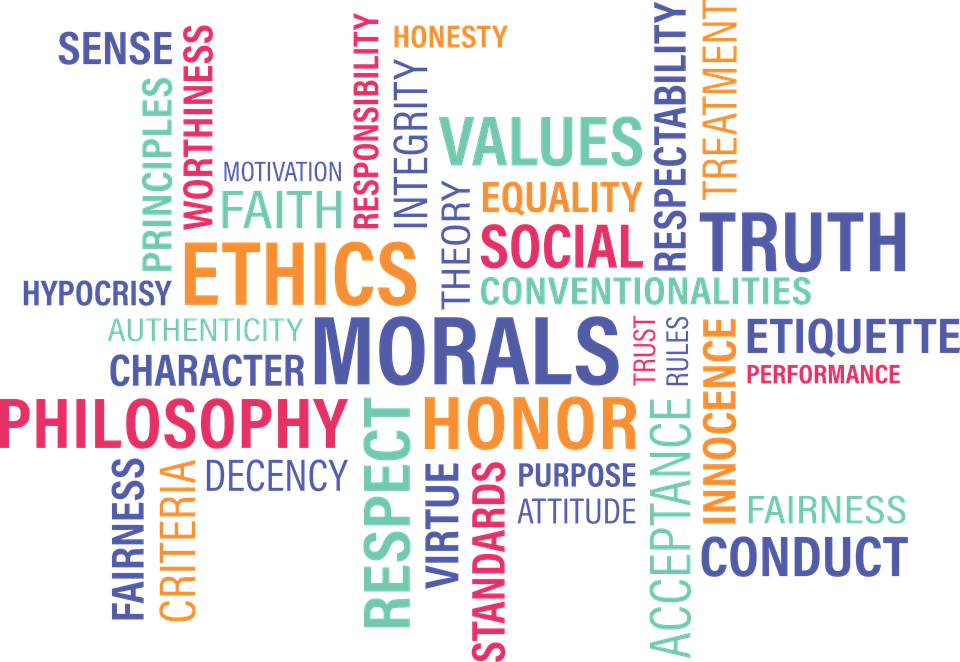We all live in the real world. When Christians speak of God as the anchor for all morality this does not mean that atheists are in contrast, immoral people. This argument is commonly misunderstood to insinuate that somehow a person who doesn’t believe in God isn’t capable of moral actions. Thus, the common defense is to point out the good deeds of an atheist to dismantle the theist’s argument.
In reality, this does not address the argument for it isn’t about what one believes, but what is true. If the origin of good is found in God, then that is true for all humanity regardless of who believes in it. The reality of that truth affects all the earth no matter who intellectually ascribes to it. Thus, every human will have an intuitive knowledge of good versus evil. We all know when we have missed the mark regardless of our religious upbringing or lack thereof.
All humans have a knowledge of the “moral ought”
It’s not something merely preferential. It always comes back to an “ought.” Humans will always appeal to a standard to justify their moral assertions. However, increasingly in today’s world people are denying the standard while trying to keep a moral construct with no foundation to base it upon. I once had a history professor who lamented repeatedly that there was no truth and no facts. We could not know anything for certain, she claimed. Ironically, one day the class was discussing plagiarism. She was appalled at how many students were attempting to justify plagiarism. She spoke adamantly that plagiarism was a moral wrong and that she could not believe the audacity of her students to argue otherwise. I wasn’t surprised. What foundation did they have to make a moral judgment if they accepted her philosophy? She didn’t live by her own philosophy. She threw it out the window when a moral “ought” came up for it didn’t work. There is a standard, but if it is denied the “ought” of morality must be denied along with it.
Christian apologists often give the argument that there is a moral law for we all have the knowledge of a moral “ought.” Therefore there is a moral law giver, namely God. In reality, this argument gives a false impression. It gives the idea that God has created a moral law that he could write out for you like the laws given in the Old Testament and that we all have a shared knowledge of these laws within us. Any thinking person can object immediately to this idea for while there is great similarity between cultures as to right and wrong, there are also differences which would indicate there is no set law to which we are all privy.
The truth is that the standard of goodness is God
His nature is good. All that is not aligned with Him is that which misses the mark. He hasn’t created a list of laws, apart from Jewish law that was intended for a specific purpose for a specific time. God, to be God, is eternal. Thus, his every attribute is eternally thus.
 God is good. He has never ceased being good. He was good before there was ever any evil. Humans look at the two and compare and contrast, but in reality, goodness isn’t waged in contrast to evil.
God is good. He has never ceased being good. He was good before there was ever any evil. Humans look at the two and compare and contrast, but in reality, goodness isn’t waged in contrast to evil.
God is good without reference to evil. There is no evil in him. What God does is good, for it cannot be otherwise. He isn’t following a moral law. He is the standard of good. He doesn’t ask us to follow a moral law. He asks us to find our life in Him. We do not become good by doing “good” things. We become good by His mercy and grace being given to us through Jesus. And when we come into that grace and life in Christ we begin to reflect our Father. We begin to live like Jesus. We learn a new way of living.
Goodness isn’t attainable apart from God.
It can’t be for it does not exist apart from Him. It is being distant from Him which brings about evil, the separation from His goodness is what corrupts and brings destruction to man. This is so, because there isn’t any life to be found except in being united with the greatest Life of all.
A person can do “good” moral things and not believe in God.
But the only way they have that knowledge of a divide between good and evil is because there is a good God that endowed them with that knowledge regardless of their acceptance of Him. That knowledge is there to lead them to the life found in Christ and away from the destructiveness of their own path. It’s a guide to the way to Him. If we think it is all about the laws or rules of living morally we miss the point entirely, whether atheists or Christian. It was never about laws. Man made religion about rules. But God never did, it’s always been about Jesus from Genesis to Revelation.






